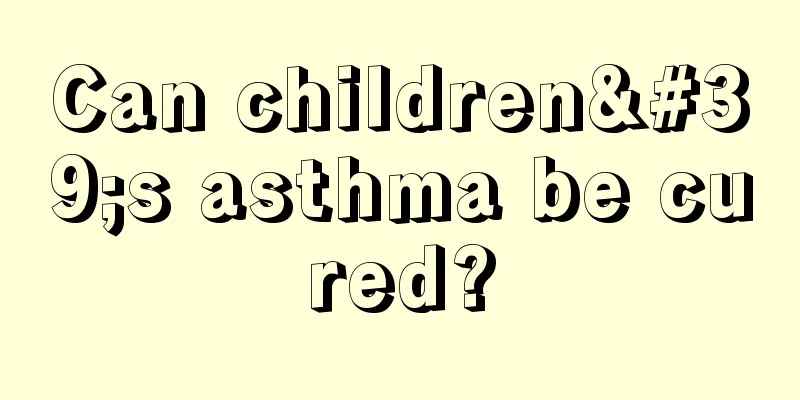Causes of tooth enamel hypoplasia in children

|
There are always some children around us. Sometimes we find that some children have black teeth. At this time, friends with children should pay attention. These phenomena are actually caused by the incomplete development of the children's enamel. If ignored, the children will often have dental problems when they grow up. The following are the reasons why children have incomplete development of tooth enamel Children's incomplete enamel development leads to black front teeth, which is mainly due to the poor calcification of children's teeth and uneven tooth surface. The teeth will initially show white spots on the teeth, which will gradually develop into enamel loss, black front teeth, etc. The causes of enamel hypoplasia are as follows: 1. High fever diseases in infancy and childhood: such as pneumonia, measles, scarlet fever, severe indigestion, rickets, severe nutritional disorders, and deficiency of vitamins A, D, calcium and phosphorus, etc., which cause the enamel-forming cells of the teeth to degenerate and die, and the enamel matrix cannot be deposited, or has been deposited but cannot be mineralized, so that the enamel cannot develop. 2. Illness during pregnancy: If the mother suffers from rubella, toxemia, etc. during pregnancy, it will also affect the development of tooth enamel. 3. Inflammation of the roots of deciduous teeth: Repeated infection and trauma will directly affect the normal development of the corresponding permanent tooth germs below, interrupting the enamel-forming function and causing incomplete enamel development. Enamel hypoplasia is a defect left behind during the development and mineralization of teeth in the jawbone. It is not discovered until the teeth have erupted and does not reflect the child's current health status. Therefore, supplementing children with vitamin A, D and calcium at this time will no longer be effective for the underdeveloped tooth enamel. Therefore, early prevention is the most important thing regarding the cause of the disease. From the embryonic period to 7-8 years after birth, attention should be paid to the nutrition and physical health of mother and baby. 1. First of all, you need to supplement calcium. In addition to taking calcium supplements, the main methods of supplementing calcium are food supplements, such as milk, eggs, soy products, hard nuts (such as peanut kernels, walnut kernels), seafood such as dried shrimps, dried shrimps, kelp, seaweed, fish floss and meat floss made from thorny bones, and vegetables such as day lily, radish, shiitake mushrooms, and fungus. The calcium content is relatively high. When eating sweet things, you can choose xylitol instead of sucrose. Xylitol has a certain effect in protecting teeth. Pay attention to adjusting the acidity and alkalinity of your diet. Don’t eat too sour food and eat less sour food. 2. Pay attention to oral hygiene. Children's toothbrushes must be soft, and the handle must fit the baby's palm for easy grasping. The size of the brush head must also be suitable for the child's mouth, so that it is small and flexible and can brush the area more thoroughly. At the same time, it is best to use toothpaste specially made for babies. Don't let your baby use adult toothpaste, as adult toothpaste can easily damage the oral mucosa. If you use fluoride toothpaste, a soybean-sized amount is enough, and be careful not to swallow it accidentally. The above are the reasons for children's incomplete enamel development and some precautions. Children are still young and do not understand how to protect their teeth, so parents must be very careful. They should give their children more calcium-rich foods and let them bask in the sun to fully absorb calcium. They must remember to remind their children to brush their teeth after eating at night. This is the only way to protect your teeth well. |
<<: Causes and symptoms of neurogenic urinary frequency in children
>>: What should I do if my four-month-old baby has dry and peeling skin in winter?
Recommend
Why does a child's tongue coating turn white?
I believe that every child is the hope of a famil...
What should I do if my child has a cough?
If a baby is feeling unwell, it will affect his p...
Nutritional diet for children in autumn
Whenever the weather on Earth gets slightly coole...
Causes of snoring in children
Normally, we have many opportunities to hear our ...
Baby often wets the bed at night
Bedwetting is a very common phenomenon in infancy...
The child coughs in the middle of the night
Children have weaker immunity and often get sick ...
What are the initial symptoms of a dislocated hand in a child?
Children are naughty and run and jump on the stre...
What to do if infants and young children are constipated
Constipation is caused by indigestion and the ina...
5-year-old baby sweats when sleeping at night
If a 5-year-old child sweats while sleeping at ni...
What are the specific symptoms of adenovirus pneumonia in infants and young children?
Adenovirus pneumonia is relatively common among i...
What are the symptoms of heat stroke in children?
What worries parents the most is their children g...
Heart failure in infants
Nowadays, many children may have to go through th...
What to do if your three and a half year old baby coughs
If a three and a half year old baby has a cough, ...
Coughing and red spots on face
When a baby coughs and red spots appear on his fa...
What should I do if my child has a bloated stomach and fever?
When children are young, they often have some phy...









